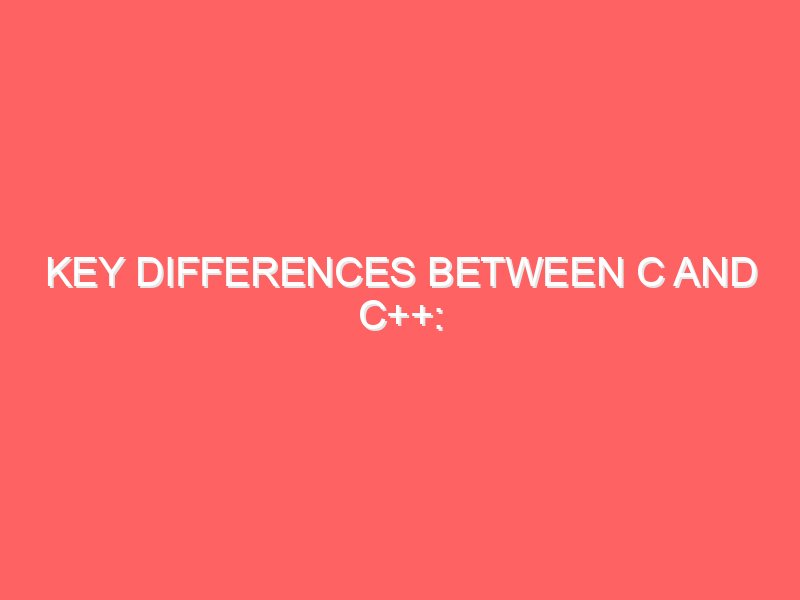Data Type of Pointer in C: A Comprehensive Guide
Pointers are a fundamental aspect of C programming, providing powerful capabilities for memory management and data manipulation. Understanding pointers and their data types is crucial for any programmer aiming to master C. This blog will delve into the intricacies of pointers, including their data types, usage, best practices, and common misconceptions. We’ll also include visual aids, myth busters, and fun facts to make learning about pointers engaging and informative. Introduction to Pointers What is a Pointer? A pointer is a variable that stores the memory address of another variable. Pointers enable direct access and manipulation of memory, making them indispensable for tasks like dynamic memory allocation, array handling, and function calls. Basic Syntax of Pointers In the above code, ptr is a pointer to an integer, and it stores the address of the variable var. Data Types of Pointers Pointers in C can point to different data types. The data type of a pointer determines the type of data it points to and the operations that can be performed on the data. Here are some common pointer data types: Integer Pointers Integer pointers point to integer variables. The pointer ptr in the example points to the integer variable var. Character Pointers Character pointers point to character variables. They are also used for string manipulation. Float Pointers Float pointers point to float variables. Double Pointers Double pointers point to double variables. Void Pointers Void pointers can point to any data type. They are often used for generic data handling and memory allocation. Pointer to Pointer (Double Pointer) A pointer to a pointer stores the address of another pointer. Double pointers are used in complex data structures like multidimensional arrays and linked lists. Visualizing Pointers Memory Layout Understanding how pointers interact with memory is crucial. The following diagram illustrates the memory layout for different pointer types: Pointer Arithmetic Pointer arithmetic allows traversal of memory addresses. For example, incrementing an integer pointer moves it to the next integer’s memory location. In this example, ptr traverses through the array arr, printing each element. Best Practices for Using Pointers Initialize Pointers Always initialize pointers before use. Uninitialized pointers can lead to undefined behavior and crashes. Avoid Dangling Pointers Dangling pointers refer to memory locations that have been freed. Always set pointers to NULL after freeing memory. Use const Keyword Use the const keyword to prevent modification of the data pointed to by a pointer. Check for NULL Always check if a pointer is NULL before dereferencing it. Advanced Pointer Concepts Function Pointers Function pointers store the address of functions and can be used to call functions dynamically. Dynamic Memory Allocation Dynamic memory allocation allows for flexible memory management. Pointers are used with functions like malloc, calloc, realloc, and free. Linked Lists Pointers are essential for creating and managing linked lists. Each node contains a pointer to the next node. Myth Busters Myth 1: Pointers Are Always Dangerous Busted: While pointers can lead to errors if misused, they are powerful tools that provide fine-grained control over memory. Proper use and adherence to best practices make pointers safe and efficient. Myth 2: Void Pointers Are Useless Busted: Void pointers are versatile and essential for generic programming and dynamic memory allocation. They can point to any data type, making them highly useful in certain contexts. Myth 3: Pointers Are Only for Advanced Programmers Busted: Pointers are a fundamental concept in C programming. With proper understanding and practice, even beginners can effectively use pointers. Fun Facts Conclusion Pointers are a powerful feature of C programming, enabling direct memory access and manipulation. Understanding the different data types of pointers, their usage, and best practices is crucial for effective C programming. By adhering to best practices, avoiding common pitfalls, and leveraging the versatility of pointers, you can write efficient and robust C code. At Emancipation Edutech Private Limited in Ranchi, we offer comprehensive courses that cover pointers and other advanced C programming concepts. Our curriculum is designed to provide hands-on experience and practical knowledge, ensuring you become proficient in C programming. Whether you’re a beginner or looking to refine your skills, our courses include: Why Choose Us? Join us at Emancipation Edutech to master C programming and other programming languages. Visit our website https://emancipation.co.in or contact us at +919264477176 for more information. By understanding and mastering pointers, you can unlock the full potential of C programming and tackle complex programming challenges with confidence. Happy coding!
Data Type of Pointer in C: A Comprehensive Guide Read More »





